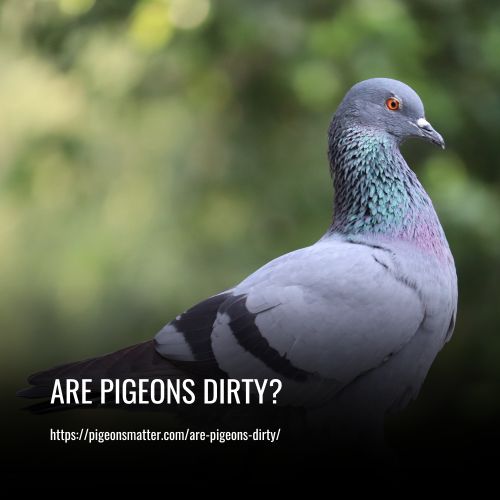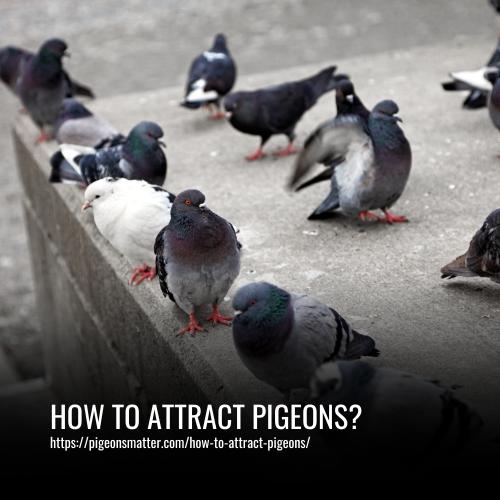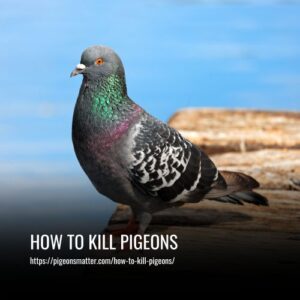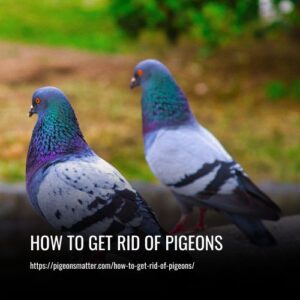Pigeons are often considered dirty birds, but they are actually quite clean. They groom themselves regularly and there is little evidence to suggest that they spread diseases like rats do. So, while they may not be the most glamorous birds, they are not as dirty as they are sometimes made out to be.

Why Have Pigeons Got A Bad Reputation
Pigeons have gained a negative reputation due to several factors, including their nuisance value and the damage they can cause.
1. Mess and Havoc
One of the main reasons pigeons have a bad reputation is the mess they create. Their droppings can be unsightly and difficult to clean. Additionally, their presence can cause havoc, especially in densely populated areas like Trafalgar Square. The mess and disruption they create are often seen as a significant nuisance.
2. Property Damage
Pigeons, especially when they gather in large numbers, can cause damage to property. The weight of the birds themselves, coupled with their droppings, can lead to structural damage to buildings, statues, and other structures. This damage can be costly to repair and further adds to the negative perception of pigeons.
3. Bullying of Songbirds
Pigeons, particularly in urban areas, can bully smaller songbirds. This behavior can result in the displacement of these beloved birds, as they are driven away from their usual feeding and nesting spots. The impact on songbird populations is concerning for bird enthusiasts and conservationists alike.
While the bad reputation of pigeons may be somewhat exaggerated, the issues they cause in terms of mess, property damage, and disruption to other bird species cannot be denied.
Are Pigeons Safe To Be Around
Pigeons are generally safe to be around, but it is important to take precautions when dealing with their droppings. Some infections and diseases, such as Psittacosis, Histoplasmosis, and Cryptococcus, can be transmitted from pigeons to humans if proper precautions are not taken.
Individuals with respiratory conditions, cancer, or other chronic illnesses should be extra cautious when handling pigeon droppings, as they may be more susceptible to infections. It is recommended to clean droppings promptly and avoid letting them dry and accumulate.
While pigeons can carry bacteria and parasites, they are as clean as any wild bird can be and no dirtier than your typical pet bird. They are not picky eaters and can help keep your surroundings clean by consuming various food sources.
By practicing good hygiene and promptly cleaning droppings, you can safely coexist with feral pigeons.
What Diseases Can You Get From Pigeons
Pigeons can transmit several diseases to humans through their droppings. These diseases include:
1. Cryptococcosis
This fungal infection is caused by the fungus Cryptococcus neoformans found in pigeon droppings. It primarily affects immunocompromised individuals and can lead to lung infections and meningitis.
2. Psittacosis
This rare disease is caused by the bacterium Chlamydia psittaci, which can be found in pigeon secretions and droppings. It presents flu-like symptoms and can be transmitted to humans through close contact with infected birds.
3. Histoplasmosis
This fungal lung infection is caused by the Histoplasma capsulatum fungus, which can be present in bird droppings, including pigeon droppings. Inhaling the spores of this fungus can lead to respiratory problems.
4. Campylobacter and Salmonella poisoning
Pigeon droppings can potentially contain these bacteria, which can cause gastrointestinal infections in humans. Ingesting contaminated droppings through improper cleaning or contaminated water can lead to these infections.
It is important to take precautions when dealing with pigeon droppings to minimize the risk of contracting these diseases. Proper cleaning and hygiene practices, as well as avoiding direct contact with pigeons and their droppings, can help reduce the risk of disease transmission.
Clean Up Pigeon Droppings
While pigeons themselves may not pose a significant health risk to humans, their droppings can carry diseases and pose a potential risk. It’s important to clean up pigeon droppings to avoid any potential health issues. Here are some tips for effectively cleaning up pigeon droppings:
1. Wear protective gear: Before starting the cleaning process, make sure to wear gloves, a mask, and goggles to protect yourself from any potential contact with the droppings.
2. Remove loose droppings: Use a broom or brush to sweep away any loose droppings from the affected area. Make sure to dispose of the droppings in a sealed plastic bag.
3. Safety precautions: Spray the area with a mixture of water and disinfectant to dampen the droppings and minimize the risk of airborne particles. Allow the area to sit for a few minutes before proceeding.
4. Scrub the area: Use a scrub brush and a solution of water and disinfectant to scrub the affected area thoroughly. Pay attention to any cracks or crevices where droppings may have accumulated.
5. Rinse with water: After scrubbing, rinse the area with clean water to remove any remaining disinfectant or debris.
6. Disinfect surrounding surfaces: It’s important to disinfect any surfaces near the affected area to eliminate any potential pathogens. Use a disinfectant spray or wipe to clean surfaces thoroughly.
7. Dispose of waste properly: Double-check that all waste, including gloves, brushes, and cleaning materials, are disposed of in sealed plastic bags. Follow your local waste disposal guidelines for proper disposal methods.
Remember, prevention is key in avoiding the accumulation of pigeon droppings. Regularly clean and maintain areas where pigeons may roost or nest to minimize the risk of droppings and associated health risks.
Preparing The Perfect Environment For Home Pigeon Keeping
Keeping pigeons at home requires proper housing and care to ensure their health and well-being.
1. Cages or Dovecotes
Pigeons require cages or dovecotes that are suitable for their breed size. Overcrowding should be avoided, and it’s best to keep two to three birds per cage. The bottom of the cages should be covered with gravel or newspaper for easy cleaning, and straw should be provided for nesting and egg-laying.
2. Feeders and Troughs
Choosing the right size and type of feeders and troughs is crucial to prevent spills and contamination. It’s important to consider the size and morphology of the pigeon breeds when selecting these items.
3. Environmental Conditions
Pigeons should not be exposed to the elements and require a stable environmental temperature of around 75°F. It’s important to keep their living space clean and well-ventilated to prevent the buildup of harmful bacteria and ensure their health and happiness.
FAQs
Feral pigeons have their own ways of cleaning themselves. They often take baths in water when they find it, and they may also take sand baths to help clean their feathers. Pigeons spend a lot of time grooming their feathers, using their beaks to comb through them and make sure they lie flat. Additionally, pigeons undergo molting, where they shed old feathers and grow new ones, which helps keep their plumage in good condition.
No, pigeons are not any dirtier or more disease-bearing than other birds. The belief that they are dirty and carry diseases is just an old wives’ tale. In reality, pigeons can be just as clean as chickens if they are properly cared for. So, there is no need to view pigeons as filthy disease carriers.
While pigeons can carry diseases, it is important to note that humans and other animals also carry diseases. Pigeons are not inherently dirty or disease-ridden. They are just one of many species that can potentially pass on zoonotic diseases, which can be transmitted between humans and animals. It is essential to practice good hygiene and take precautions when handling any animals, including domestic pets like cats and dogs.
Conclusion
While pigeons may have a reputation for being dirty, it’s important to remember that they are just like any other animal. With proper care and attention, they can be great companions and even help keep our cities clean.
So next time you see a pigeon, don’t be so quick to judge. Give them a chance and you might just be surprised at how much you grow to love them!


